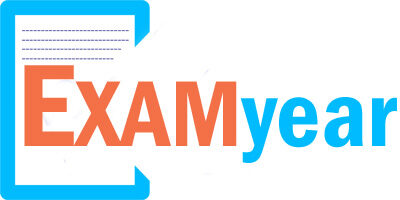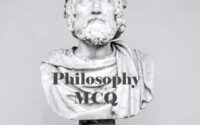Philosophy Old Question Papers
On this page, Applicants can check the below links for downloading the Philosophy Old Question Papers. The Philosophy Old Question Papers will be helpful for the applicants in their preparation. Hence, the people can begin the practice by downloading Philosophy Old Question Papers.

The Philosophy Old Question Papers may not contain the originally asked questions. Free downloading links of the Philosophy Old Question Papers are enclosed below.
Old Question on Philosophy
1. The causal relation, according to Hume, is an:
(A) Innate idea
(B) Causal idea
(C) Dissociative idea
(D) Associative idea
2. According to whom the proposition ‘God exists’ is a quasi-ontological proposition:
(A) Kant
(B) Anselm
(C) Descartes
(D) Ryle
3. The distinction between Shreyas and Preyas is maintained in the:
(A) Taittiriya Upanisad
(B) Brhadaranyaka Upanisad
(C) Katha Upanisad
(D) Prasna Upanisad
4. Adrsta as agency, is conceived by:
(A) Naiyyayikas only
(B) Vaisesikas only
(C) Naiyyayikas as well as Mimamsakas
(D) Mimamsakas only
5. ‘Death as Moksa is uphold by:
(A) Samkhyas
(B) Jainas
(C) Bauddhas
(D) Carvakas
6. ‘Svadharma’ means:
(A) One’s own duties
(B) Prakrti
(C) Self-knowledge
(D) Self-realization
7. Which of the following is not given in Vedic tradition?
(A) Pitr-rna
(B) Deva-rna
(C) Manava-rna
(D) Rsi-rna
8. Which of the following is not covered in yamas?
(A) Don’t drink intoxicants
(B) Don’t steal
(C) Don’t harm
(D) Don’t hoard
9. Carvaka views on Purushartha may be labelled as:
(A) Psychological Hedonism
(B) Ethical Hedonism
(C) Paradox of Hedonism
(D) Universal Hedonism
10. Which of the following is not a task of phenomenological reduction?
(A) To enable the naturalistic point of view
(B) To enable holistic knowledge claims
(C) To enable presuppositionless claims
(D) To enable grounding of entities
11. Which of the following is the socially binding principle?
(A) Dharma
(B) Artha
(C) Kama
(D) Moksa
12. According to Ryle a category mistake is committed when:
(A) A fact belonging to one category is presented in the idiom appropriate to another
(B) A fact belonging to one category is reduced to the idiom appropriate to another
(C) A fact belonging to one category is totally denied
(D) The relation between the two categories is wrongly presented
13. Who among the following Utilitarian philosophers advocated Qualitative distinctions in Pleasure and Pain?
(A) J. S. Mill
(B) Bentham
(C) Sidgwick
(D) Kant
14. “Eye for an eye” is advocated by which one of the following theories of punishment?
(A) Deterrent theory
(B) Retributive theory
(C) Preventive theory
(D) Reformative theory
15. ‘Ethical sentences are about the attitudes of the people’—is the stand point of which one of the following ethical theories.
(A) Moral Subjectivism
(B) Moral Realism
(C) Universal Prescriptivism
(D) Emotivism
16. Which one of the following statements is not true of Altruism?
(A) In case of “pure” altruism selfinterested motives are entirely absent
(B) An altruistic and has to be necessarily self-sacrificing
(C) An act is altruistic in the weak sense if it is motivated by the tort that it benefits at least does not injure anyone
(D) An act is altruistic in the strong sense if one undertakes it inspite of the perception that it involves some loss of one’s wellbeing
17. Which of the following is maintained in traditional ethics?
(A) All good actions are right but all right actions are not necessarily good
(B) All good actions are duties but all duties are not necessarily good
(C) All right actions are not duties and all duties are not right actions
(D) Right actions and duties are incompatible
18. Teleology and Deontology get synthesized in:
(A) Rule-ethics
(B) Principle-ethics
(C) Virtue-ethics
(D) Meta-ethics
19. According to Plato, the existence of which virtues ensure justice?
(A) Truth, Knowledge, Beauty
(B) Truth, Goodness, Beauty
(C) Wisdom, Courage, Temperance
(D) Wisdom, Fortitude, Love
20. Deontological performance of duties is prescribed by:
(A) Bentham
(B) Mill
(C) Kant
(D) Hume
More Question Papers on Philosophy
| Question Papers | Question Bank |
| MCQ Objective | Practice Set |
| Selected Question | Mock Test |
| Typical Question | Old Questions |
| Test Papers | Sample Papers |
| Important Question | Model Question |
21. Aristotle speaks of Eudaimonism as:
(A) Benevolence
(B) Magnificience
(C) Excellence
(D) Patience
22. Select the four sanctions of morality given by Bentham:
(A) Physical, Mental, Linguistic, Social
(B) Physical, Social, Political, Religious
(C) Physical, Mental, Linguistic, Political
(D) Physical, Social, Linguistic, Religious
23. The problem of means and ends and the insistence on the purity of means are the highlights of whose philosophy?
(A) K. C. Bhattacharya
(B) J. Krishnamurti
(C) M. N. Roy
(D) Mahatma Gandhi
24. Satkhyati is maintained by:
(A) Ramanuja and Prabhakara
(B) Ramanuja
(C) Prabhakara
(D) Ramanuja and Kumarila
25. According to Iqbal, other minds are known through:
(A) Postulation
(B) Intuition
(C) Testimony
(D) Sense-perception
26. Which aspect of Dharma is emphasized by Phule?
(A) Devotion
(B) Truth
(C) Goodness
(D) Beauty
27. The Absolute, as conceived by Radhakrishnan is pure consciousness, pure freedom and:
(A) Infinite
(B) Infinite descriptions
(C) Infinite possibility
(D) End of possibles
28. Who among the following asserts “Religion without philosophy runs into superstition; and philosophy without religion becomes a dry atheism”.
(A) Radhakrishnan
(B) Swami Vivekananda
(C) Sri Aurobindo
(D) Tagore
29. The statement—“Intuition brings to man those brilliant messages from the unknown which is the beginning of his higher knowledge” can be attributed to:
(A) Radhakrishnan
(B) Sri Aurobindo
(C) Swami Vivekananda
(D) Tagore
30. Who among the following asserts— “politics have their roots in the spiritual life of man”?
(A) Mohammad Iqbal
(B) Mahatma Gandhi
(C) Sri Aurobindo
(D) Swami Vivekananda
31. Absolute for Radhakrishnan has to be:
(A) Materially real
(B) Of the nature of spirit alone
(C) Of the nature of void
(D) Of the nature of both material and spirit
32. According to Jiddu Krishnamurti freedom is:
(A) Free response to nature
(B) Exercising choice without any preconceptions
(C) Pure observation
(D) Knowing self in isolation from relation
33. Sartre’s humanism orients itself towards:
(A) an open future of collective responsibility
(B) an open future of solitary responsibility
(C) an open future of ecological responsibility
(D) an open future of scientific responsibility
34. According to Heidegger, the proper response to technology is to:
(A) understand it within Being (Sein)
(B) abandon it within Being (Sein)
(C) accelerate it within Being (Sein)
(D) manipulate it within Being (Sein)
35. According to Nietzsche, the assumption of identity underlying logic is:
(A) culturally fulfilled
(B) rationally fulfilled
(C) spiritually fulfilled
(D) fictitiously fulfilled
36. For Levinas, the face of the other is:
(A) a moral summon for responsibility
(B) an epistemological summon for science
(C) an aesthetic summon for pleasure
(D) an intellectual summon for reason
37. James attempted to replace ‘the truth’ with a diversified plurality of:
(A) Appearances
(B) Truths
(C) Percepts
(D) concepts
38. According to Ryle, Cartesian theory of mind is based on a confusion between:
(A) Mental description and disposition
(B) Mind and brain
(C) Mental and physical properties
(D) Logical and psychological properties
39. According to C.S. Pierce, truth is:
(A) the ideal limit of knowledge
(B) the ultimate goal of knowledge
(C) the expedient in the way of thinking
(D) the logical requirement of enquiry
40. The distinction between actual and probable verification was upheld by:
(A) Schlick
(B) Ayer
(C) Carnap
(D) Wittgenstein
41. ‘Incomplete symbols’ of Russell are those which fulfil the following:
(A) their contribution to meaning did not consist in denotation
(B) their contribution to meaning consists in denotation
(C) they are used as names
(D) they are not susceptible of analysis
42. Which of the following is not what Quine criticizes as “two dogmas of Empiricism”?
(A) The distinction between analytic and synthetic propositions
(B) Phenomenalism
(C) The reducibility of each meaningful statements to the set of immediate experiences
(D) Totality of our so called beliefs is man-made
43. The objective of total revolution is:
(A) to change government, but not society and the individual
(B) not only to change government, but also society and the individual
(C) not to change government, but society and the individual
(D) to change government and society, but not the individual
44. Swadeshi was:
(A) not just an economic doctrine, but covered all aspects of human life
(B) just an economic doctrine and did not cover all aspects of human life
(C) not an economic doctrine, but covered all aspects of human life
(D) neither an economic doctrine and nor did it cover all aspects of human life
45. Constitutional morality:
(A) cannot be reduced to pure normativity or pure legal form
(B) cannot be reduced to pure normativity and pure legal form
(C) can be reduced to pure normativity but not to pure legal form
(D) cannot be reduced to pure normativity but to pure legal form
46. Freedom to practice religion is ………………… right in India.
(A) a fundamental right
(B) a cultural right
(C) a political right
(D) an informal right
47. In the Indian Constitution, the right to property is not:
(A) a fundamental right
(B) a legal right
(C) a moral right
(D) an individual right
48. Affirmative action aims at:
(A) social justice
(B) political justice
(C) individual justice
(D) global justice
49. According to Kautilya, in the process of selecting a new king:
(A) A state must have a king even if deserving candidate is not available
(B) A person from the relations of the previous king must be selected
(C) It is better to keep a state without a king instead of selecting an undeserving person
(D) The eldest prince of the previous king must be selected
50. According to Kautilya, what brings glory to king and the citizens?
(A) Beauty of the land
(B) Magnitude of the army
(C) Good governance
(D) Enormous wealth

